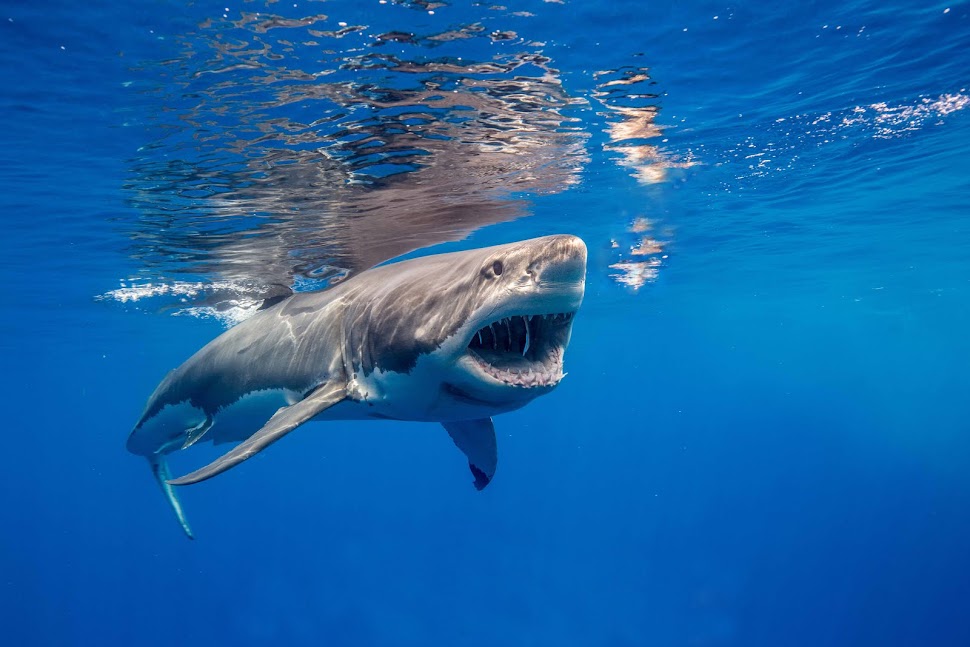
Success in the Bahamas. The CAPO Groups efforts to
completely tear down the last mangrove lemon shark nurseries in the Bahamas was met with a storm of protest and seemingly deaf ears from the Bahamian Government who, for all intents, were more interested in the financial side of the new mega resort development in Bimini.
The campaign to save this site was driven by old fashioned pressure, letters, and a very slick series of online video's posted to You Tube and other eco sites. Today the Bahamas announced they will be creating a Natures Reserve in the area. Kudos to the many who started this project and who carried it through to this day, and to Doc Gruber and his team as well. As a template for the creation of other marine sites in the Bahamas this eco challenge was one for the books:
The Bahamas government has created a marine reserve off the island of North Bimini, preserving critical mangrove habitat and a shark nursery that had come under threat from a resort there.
The reserve, which will be protected from most fishing and other "extractive activities," is home to endangered species such as the Nassau grouper and the Bimini boa, as well as a vibrant nursery for lemon sharks.
The decision -- approved by the Bahamas cabinet Dec. 29 but announced last week -- is a setback for the Bimini Bay Resort and Marina, which has been clearing some of the island's mangroves to build a hotel, a golf course, a casino and two marinas, some of which have already been constructed.
Prime Minister Hubert Ingraham had initially considered establishing the reserve in the late 1990s, but his party lost power in 2002, and the development proceeded. Ingraham's party won back control in 2007.
Philip Weech, director of the Bahamas Environment, Science and Technology Commission, said the government concluded that the mangroves on North Bimini's North Sound contribute to the nation's fisheries as well as tourism. It is vital for the fisheries in the area to retain the ecosystem in that area," Weech said, adding that the reserve "helps us also to deal with the issue of climate change, flooding, storm surge and the biodiversity that's there."
Under the plan, the government will allow traditional land crabbing in the protected area, along with limited catch-and-release bonefish fishing.
Samuel Gruber, a University of Miami professor who has studied lemon sharks for nearly 20 years as head of the Bimini Biological Field Station, called the creation of the reserve "miraculous."
Gruber and four colleagues published a scientific paper last year showing that dredging in the North Sound for the resort construction in March 2001 had cut the first-year survival rates of juvenile lemon sharks there by more than 23 percent.
Ellen Pikitch, executive director of the Institute for Ocean Conservation Science at Stony Brook University, who has collaborated with Gruber on his shark research, said the Bahamas' decision is significant because mangroves represent "essential fish habitat, and they're dwindling all over the globe."
The Bimini Bay Resort and Marina did not return calls seeking comment yesterday. Weech said any further development, including the planned construction of a golf course, would be allowed only if it did not jeopardize the reserve.
Demian Chapman, a Stony Brook professor who has also conducted research in Bimini, said the golf course "would be a disaster" because it would damage the reserve's water quality.
"It's just like having a sewage plant next door," he said.
 We have been following the efforts of a small group in India in tandem with a few well known NGO's who are reversing the wholesale slaughter of whale sharks in their region. Replacing the "one time take" instead with new whale shark tourism initiatives.
We have been following the efforts of a small group in India in tandem with a few well known NGO's who are reversing the wholesale slaughter of whale sharks in their region. Replacing the "one time take" instead with new whale shark tourism initiatives.






























